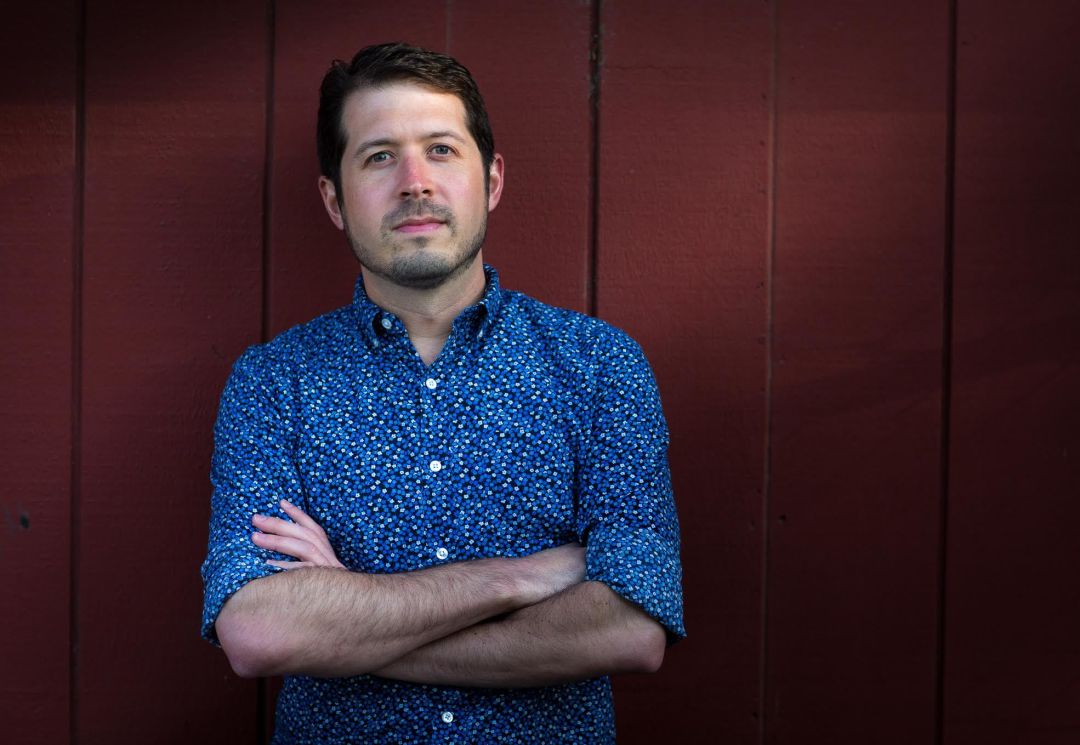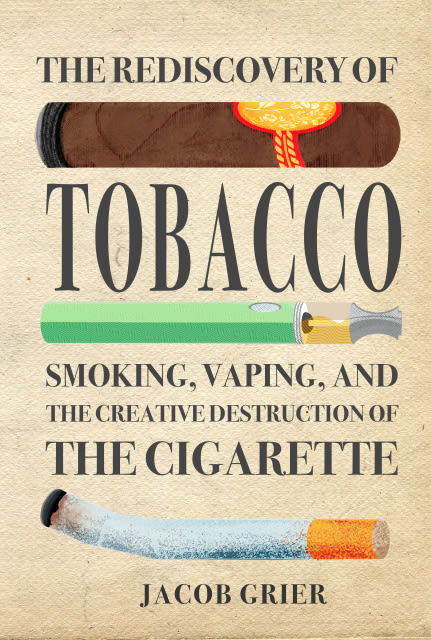Did Portland’s Cigarette Bans Go Too Far?

Author Jacob Grier shares his thoughts about smoking in The Rediscovery of Tobacco.
Image: Courtesy Jacob Grier
It’s a scene that’s become all but extinct in Portland: a smoke-filled tavern, ashtrays and pint glasses overflowing under the same roof. The Horse Brass pub, a Portland institution, was one of the last holdouts before a sweeping 2009 ban on indoor smoking wiped the map almost clear of businesses with smoking permits.
A decade later, indoor smoking almost feels like a Mad Men-style anachronism, as the bans on smoking have crept further out of the pubs, supermarkets, and apartments to include parks, beaches, sidewalks and indeed most spaces, indoors and out. While many list these bans as one of the great public-health successes of the century, Portland author Jacob Grier has a... different take. In his new book, The Rediscovery of Tobacco, Grier decries heavy-handed bans, the one-size-fits-all approach to tobacco and nicotine, and the cigarette itself, which he credits as the deadly impetus that lead to this government overreach.
Grier's last book Cocktails on Tap explored a world of cocktails tweaked with beer. His take, this time, is not just as a connoisseur, although he does adoringly cover the craft process of what he calls “slow tobacco” (nicknamed for Italy’s “slow food” movement). Instead, Grier lays out his own liberal ethos toward nicotine, calling into question the what he calls the “illiberal anti-smoking movement.”
“Obviously,” Grier tells Portland Monthly, “I don’t want a return to the 1960’s, people smoking everywhere.” It’s a theme reinforced through his book, where he enumerates the millions killed by tobacco-related illness and outlines the factors that make cigarettes ubiquitous and addictive. Some reasons are scientific: the lower pH smoke of cigarette tobacco crops allow for a deeper inhale. Some are economic: automated manufacturing practices and brand dominance put cigarettes everywhere.
The public health havoc cigarettes left behind are obvious: faith in tobacco companies is non-existent, smokers are ousted from almost every indoor space, and cigarettes are at an all-time cultural low. Spaces where cigarettes are allowed are thinly mosaiced in between no-smoking signs by most doors, patios, air intakes, parks, and apartments.

Image: Courtesy Jacob Grier
This, says Grier, is where the problem is: In responding to the public health crisis that cigarettes posed, we’ve overshot. Grier says smoking bans are being over-applied, calling them out as pointless in open spaces such as parks and beaches. “A brief encounter of a smoker in a park is not going to give anybody deadly sickness,” he says. He also points out in his book that the poor and disadvantaged are more reliant on these public spaces, and are disproportionately affected, pointing to a Seattle ACLU rebuttal of a park smoking ban.
Secondly, Grier sees a relationship between regulators and the biggest tobacco companies. Regulatory checks on tobacco, he points out, require thousands of dollars and over a year in FDA reviewal, taking time and money that small producers of products like cigars might not have. Most of these regulations were set in place in the Tobacco Control Act of 2009. Philip Morris, who lobbied for the act, can foot the testing bill easily and already has product in circulation.
Grier decries the dominance of what he calls the “worst kind” of tobacco, but he’s no proponent of total cessation. He’s a cigar and pipe smoker himself, writing lovingly of his first experience with a rare Semois pipe tobacco and of the varietals of tobacco, wrapping leaves and techniques of cigars. He argues that the relative infrequency, shallower inhale, and slower smoking of these products lowers their risk level, relative to the absolute negative of cigarettes. Along with vapes, he sees these as less dangerous options that cigarette smokers can switch to, if they choose. But choice is the central praxis for Grier, not banning enough space that smoking becomes too inconvenient or putting regulatory hoops on new products.
Grier is ready to admit that the smokers’ rights movement isn’t likely to take off right now. Cigarette bans expand yearly, while there isn’t anyone calling to deregulate tobacco or bring more competition out on the market. Vapes, linked to 12 deaths now nationwide, are being banned state-by-state while, Grier notes, the death toll from cigarettes in the same time is ranked in the thousands. (“Cigarette sales sure to go up,” he tweeted in response to a recommended Oregon vape ban that subsequently went into effect). In Portland, the only indoor smoking spaces are dedicated to high-class cigars, with a price point to match.
“This isn’t an opportunity [for smokers] to see something different that they might find more appealing, and we’re not giving them that opportunity,” says Grier. Might that alternative be the “slow tobacco” that Grier loves so much?
“If there were any city that could pull it off, it might be Portland,” he replies. But he’s quick to note: “We need spaces to do it, for starters.”




